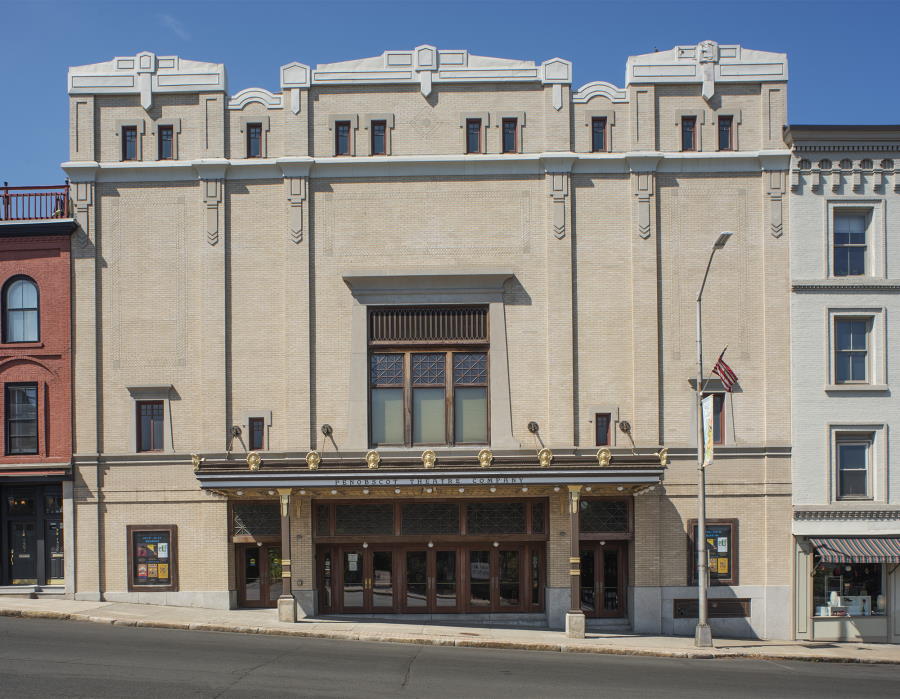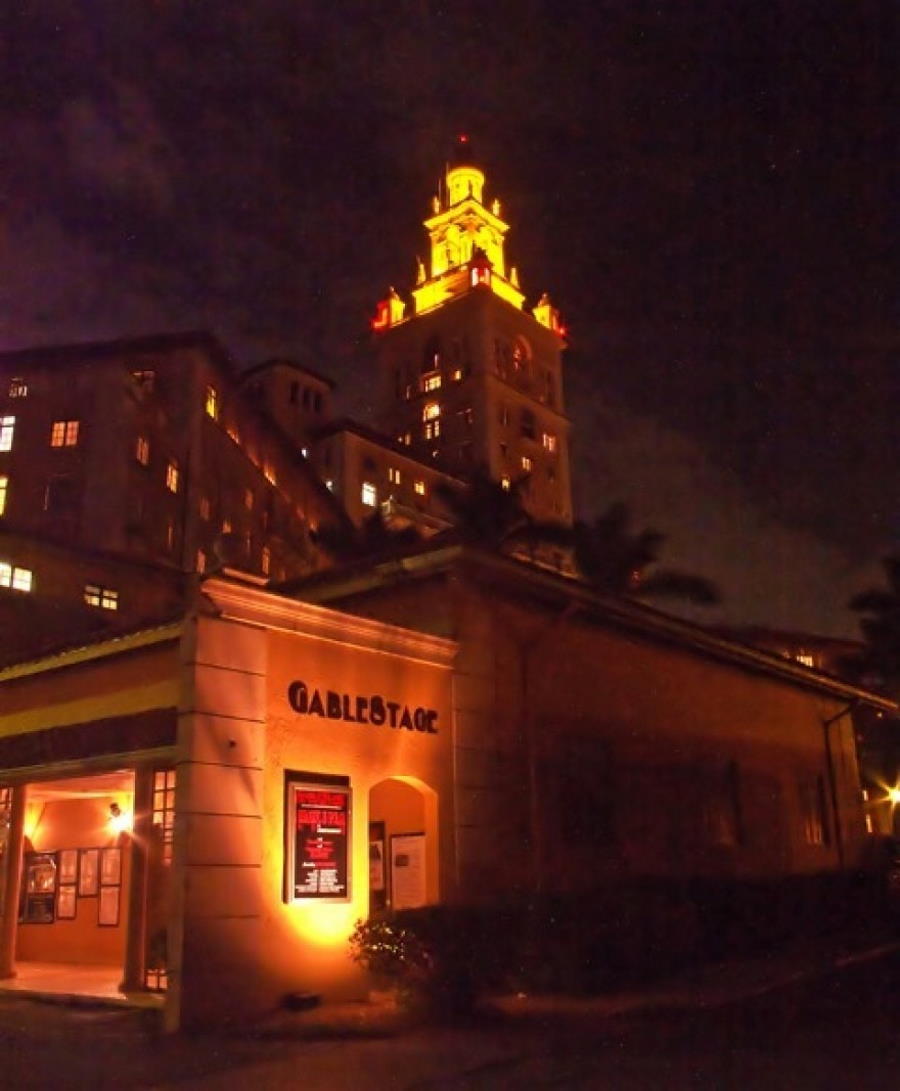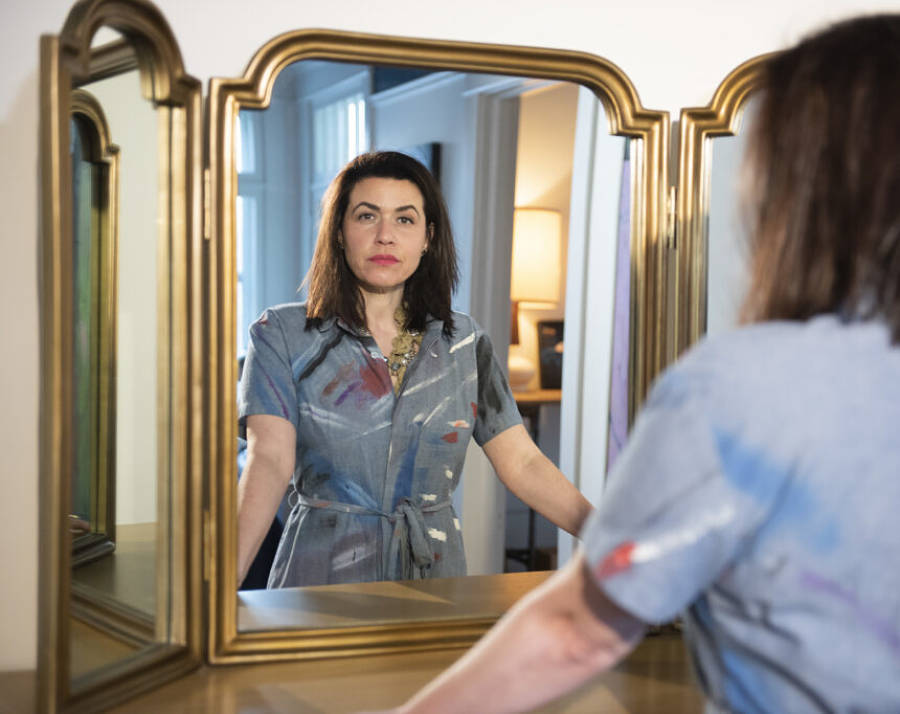I’ve tracked the career of Bari Newport with some interest over the years, not least because I first met her when she was a college intern at Back Stage West in the 1990s. She wrote some great pieces for us back then, including a review of a Culture Clash show, and, as she reminded me recently, I apparently turned her onto the wonders of Brecht and Weill.
The occasion for our conversation was her recent appointment to the role of artistic director of Florida’s GableStage, a small but influential theatre in Coral Gables, Fla., that was run for decades by its feisty founder, Joseph Adler, until his death last year. This follows Newport’s nine seasons as artistic director of Maine’s Penobscot Theatre, after early gigs as artistic associate at Atlanta’s Alliance Theatre, artistic associate/literary manager at the Pasadena Playhouse, associate producer at Atlanta’s Horizon Theatre, and associate director of Florida Repertory Theatre in Fort Myers.
When we spoke, Newport had more or less settled into her new Miami-area digs with her husband, photographer Magnus Stark. In the weeks since, GableStage announced its 2021-22 season, which will kick off in November with a Newport-directed production of The Price and will also include Susan Papp-Lippman and Avi Hoffman’s Joe Papp at the Ballroom, Claudia Rankine’s The White Card, Jessica Provenz’s Boca, Tanya Saracho’s Fade, and a musical from playwright Janece Shaffer and Grammy winner Kristian Bush called Me Before You.
This conversation has been edited for length and clarity.
ROB WEINERT-KENDT: First, congratulations on the new position. Your career has really taken you all over the place, but that’s not entirely new for you, am I right?
BARI NEWPORT: My first year in college at USC, I remember our acting teacher, Anna Stramese, gave us a handout about how many army kids were in theatre. I’m not an army brat, but my my dad was transferred quite a bit; he worked for UPS. I was born in Los Angeles, but I grew up mostly in Connecticut, and some Ohio and some Atlanta. Stamford, Conn., is a commuter town to New York, so I had access to some of the best and most historic summer stock theatres in the country. I started at a really young age being involved in office management at theatre companies. In the middle of my teenage years, I started to work at the Westport Country Playhouse.
Most folks get into theatre wanting to act, and you were no exception, right?
I think most people don’t know all of the roles that exist in theatre. You want to be what you see, and I could sing really loud. Acting is the basis for everything I do, which is to do, to act. And of course, the beauty of the craft of acting is that it’s lifelong learning, since it’s the study of life, right? You continuously learn from it, which is why so many smart people are actors, because life is endlessly fascinating. And the craft of acting is a deep, deep, deep, deep, deep well that changes as you grow.
But I started producing and leading things really early on. Whenever I wasn’t cast, I would just do it myself. Now I tell people: You’ll always work if you can make your own work. When I was at Westport, I said to my parents: “I want to run something like this.” I don’t think I really knew what that meant. But I did know that it was like magic there. I loved being there. It was a place where so many people had to work together to make something really hard happen. It was the smell of the place; it was me dressing up as Rocky the Rooster on a Friday afternoon and opening shows for Harry Chapin. It was all the lore of theatre: the ghost light, sweeping up stage in the right way, running shows with reel to reel still.
But it was also the plays while I was there. I ran sound for the national tour of Dancing at Lughnasa. It was the first place I saw M Butterfly. It was a magic experience in every way. And I was trusted—I was like 16 years old and given a given a Ryder truck to drive to New York to go to the flower district and pick up palm fronds, and that’s what I did. It made a huge impression on me.
Did you ever start to think not only, “I want to do this,” but, “I can do this better, I have my own vision”?
I’m really, really, really focused on American regional theatre. And because we moved so much, I was very interested in what people in rural communities did for professional theatre. At the time, I don’t think I really grasped what makes something professional. Now I say it’s because the professional has depth. Because everybody’s spending all their time, all their energy, working on that thing. It certainly isn’t just that you’re paid; it’s about the depth of every aspect of the storytelling and the experience. For our art form, that focus is essential, because so many people don’t come to theatre anymore because they had a bad experience—they thought it was boring, they thought it wasn’t for them, they thought they wouldn’t understand it. That alone has compelled me to give as many people as possible the experience I’ve had with professional regional theatre.
You’ve worked at a lot of theatres in different places. Do you feel like when you walk into a theatre, you can get a quick read of how it works, what its priorities are? Are there commonalities among the theatres, or are they all special unicorns?
I ask the same questions every time, which are: What is the mission statement of the company? And number two—somebody said when I was at the Alliance that every theatre, no matter how professional, is a community theatre, so who is the community that we’re serving? And three, it’s leaning hard on the reason why we’re all nonprofits, which is, how can we be in service to that community? Those are really like the big three that I look for wherever I go.

What was the state of Penobscot Theatre when you got there nine years ago?
It was something I was really unfamiliar with: a kind of a happy hybrid of a professional theatre and a high-end community theatre. The previous artistic director, Mark Torres, who had run Penobscot for like 13 years, is the one who said to me that what makes something professional is that it’s approached with depth, and that has really stuck with me.
But Penobscot is in a town of 30,000, Bangor, which is a service town for a region. So that theatre company is serving a region, which is something that I really focused on. It’s in a huge building, an 100-year-old opera house, and 70 percent or more of its revenue comes from ticket sales, which I learned from my time at the Cumberland County Playhouse in Tennessee is common for rural theatre companies, because there are no major corporations around. What I saw at Penobscot was a self-esteem issue—not just a company but a region that had kind of low ideas of itself and what it could be. Sometimes it takes an outsider to come to a place and be able to see.
So one of the big things we did there was to professionalize it. I heard an actor there once say that he would never be an Equity actor because the company would never go on a full contract; the company had been using guest artists contracts forever. That alone made me commit to: Of course we can be an Equity theatre. Or some folks said, the company can never do a play in the summer, because Bangor is not a tourist town. Well, what if you give them something to come to? Or folks said, the organization can never do a big musical—well, let’s make one. And over the time I was there, I saw the board professionalize itself through constant constant education and refocus.
My husband calls me a theatre missionary. I believe so fully in the mission of the American regional theatre, which is, in my opinion, to serve and to tell distinctive stories about place. When I got there, I think people thought I really wanted to be on Broadway. They looked at me like, why is she taking this job in some kind of backwater? Rather than: Oh my God, this is a jewel, this is a very special place, and this theatre is for people who live here. It’s this place of optimism and vibrancy, it’s telling stories that people are clamoring to come to, it’s keeping all of downtown alive, and it’s been around for so long because of this community. So I take all of that really seriously. All of that is my driving passion.
GableStage obviously serves a different community and has a different aesthetic—new plays, often provocative. Why did you want this particular job, and what is your mission now?
The mission of the company is to challenge South Florida audiences with productions of artistic excellence that confront today’s issues and ideas. An artistic director said to me that one of the first things she looks for when she comes into a community is whether the community listens with their head first or their heart first. GableStage is head first; Penobscot was heart first. The Penobscot mission is to inspire a lifelong passion for the art form, in Maine and beyond, and here it is to tackle issues and ideas, and to leave audiences with something to talk about at the end.
Would it be fair to say, then, that just as the challenge at Penobscot was to shore up its professional ambitions, in a way to add a head to the heart, at GableStage it might be to make sure it’s not just ideas onstage—that the shows have some kind of heart or humanity to them too?
Absolutely. Our previous executive director at Penobscot said that what I bring to the table is delight. I love that. I think that is probably the opposite of what Joe Adler’s essence was, and that alone makes this chapter for GableStage different.
Can you tell me your thoughts about the past year of challenge and protest and reflection about the field’s inequities and unsustainable practices, as lifted up by the We See You White American Theater document and elsewhere? How have you sat with those demands as you’ve been making this change in your own career?
It’s like how I’m sitting with you now. This particular company had a double whammy this past year, with Joe’s death and the pandemic, and it feels awfully presumptuous of me to appear in the new community and act like I understand the unique racial boundaries, alliances, and communications of this particular community. So first of all, I need to listen, and that’s going to take a second. One of the first things I did when I got here I rehired Alejandro Martin, the gentleman who was assisting Joe for seven-and-a-half years. On my first phone call with him, he said, “GableStage has produced five Latinx plays in the last 22 years.” I heard that loud and clear. Miami itself is 60 percent Hispanic. So again, being totally new and from the outside, I’m able to program in a way that possibly is more holistic, just because I didn’t start the company 22 years ago, and I’m of a new generation.
Also, I’ve noticed that because I was raised all these years with all these mentors who believed that you just had to get it done, you had to work on Thanksgiving and Christmas, I never asked really why most my colleagues don’t have children. One of my proudest achievements at Penobscot was, as I was leaving, setting up a 401k for the company; the people couldn’t believe it, because people in our industry not only don’t expect it, but haven’t thought it was even possible.
An eye opener for me was when I was negotiating this contract. The search firm brought some comparable positions of my colleagues across the country for theatres similar in size to this, and I have to tell you, I was totally shocked see what people were making. It’s so low. It’s a total shift in how we’re thinking of ourselves and our own worth, how boards think about what we do. And of course that opens up a whole conversation about what the community values.

I read one piece that described Joe Adler as doing the work of three people. Do you plan to work that hard?
I was hired to scale the company up. The days of this company being a scrappy little theatre company on the side of a beautiful hotel are over. This is a professional company, and it’s going to behave in a professional, modern way. Something I’ve learned over the last two weeks is that no theatre company in Miami except for the Actors Playhouse has their own scene shop, so the companies are left with the following options: One is building onstage, and the other option is that companies have to hire a professional shop to build. That’s big, because one of the major defining aspects of a theatre company is the handcrafted nature of the work that you’re seeing. But because of the way it works here, it’s difficult to have craftspeople on staff, and the craftspeople that do exist are running around a large area doing freelancing at all these different companies. That’s something we’re going to change here in terms of how it was being done, and that forces the whole season to expand.
As for Joe—because he was, I guess, a superhuman person who was totally, totally focused on GableStage, and doing rad productions, the season went from basically October through September. Right now we’re condensing the season so that we’re dark, at least from the audience perspective, in August and September.
From central Maine to South Florida, you’re in for a big change in weather, at least.
It does make me want to peel my skin off when people talk about the weather—especially because so many people I’ve spoken to in Miami are in the Berkshires for not two months, not three months, but five or six months!
Didn’t you have blizzards shut your theatre a few times in Bangor?
More times than I can count. But Mainers are hearty. And like I said, a theatre is for the people who live there.
Rob Weinert-Kendt (he/him) is the editor-in-chief of American Theatre. rwkendt@tcg.org


